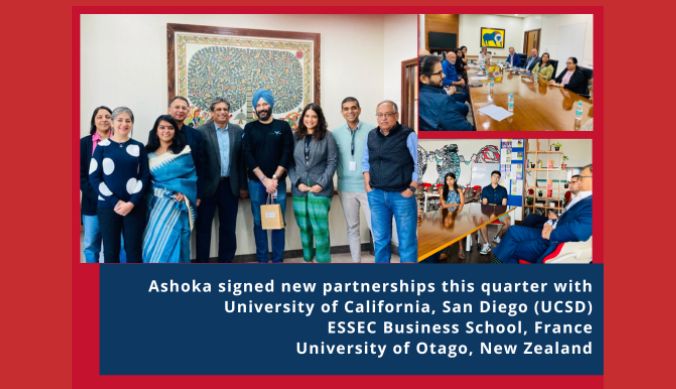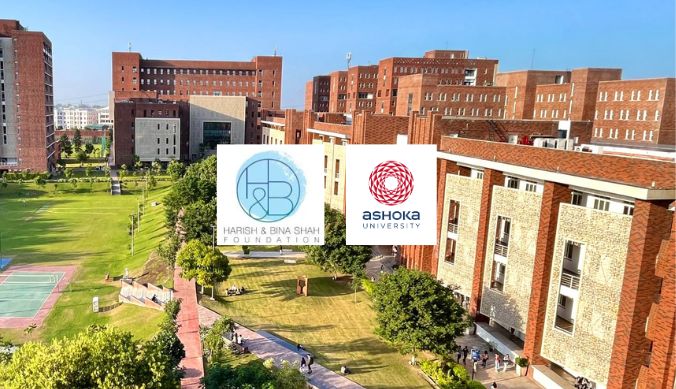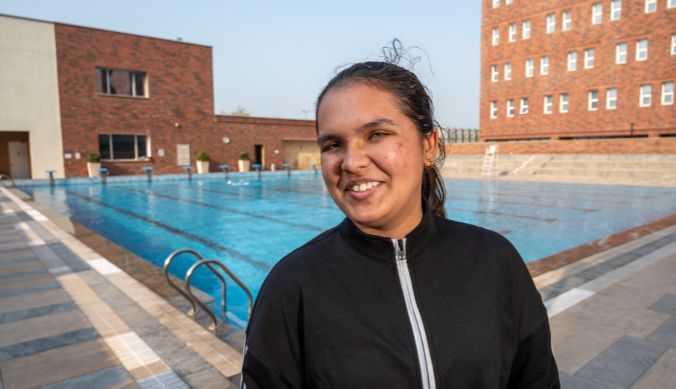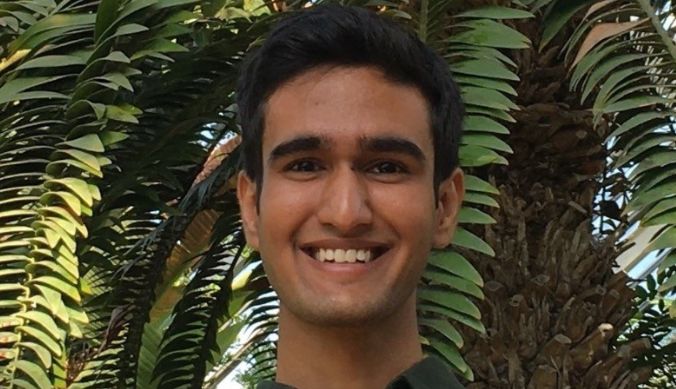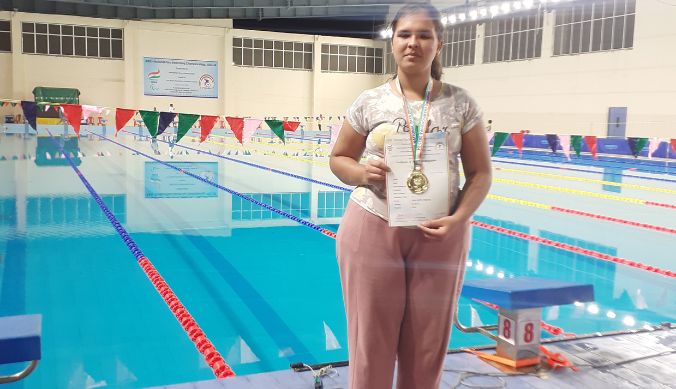YSP-Urban Lab: A new programme on social impact and change for high school students gets launched this winter!
This winter GESP launched a new programme, on social impact and change, for high school students in classes 9-12, called YSP-Urban Lab (UL).

Office of PR & Communications
24 October, 2020 | 12 min readThe programme took the 25 students in its first cohort which began with a conversation about issues they care about. Students got an opportunity to identify an issue of concern, learn research tools and find resources in a methodical manner to work on a project for effecting change.
Programme Structure: Over the course of two-weekends the programme was structured with faculty presentations, case studies, project-based learning, small group discussions and project work along with expert mentorship.
YSP-Urban Lab AcademicsThe faculty sessions were enlightening and inspiring. Here are some of the highlights from the first YSP-Urban Lab sessions. The programme was kicked off with a presentation by Ingrid Srinath, Director of CSIP on the changing mindset of philanthropy over the years.
Prof. Durba Chattaraj told the students that, “Anthropology makes the strange familiar and the familiar strange as we reflect on our own society through the art of observation.” With several activities of observation, Prof. Chattaraj gave the students an experience of what anthropologists do, that is, “to understand what is going on in our world by wearing a new pair of glasses.”
Students found the session on ‘Gender and Ecology’ by Kanika Mahajan very thought-provoking and interesting. She explained how the COVID-19 crisis is not gender-neutral as data shows that women’s suffering is very different from that of men. Prof. Amita Baviskar’s session on the health of the ecological environment was an eye opener. Highlighting the case of where food and water come from, her presentation pointed to the intertwined issues that life in the modern urban environment is witnessing. Ms.
Shweta Kalyanwala, a visiting faculty, taught methodology to the scholars which emphasized the need to do background research, how to conduct interviews with confidence, develop a sensibility to work without implicit bias and assumptions. Another popular session was Apurv Mishra’s presentation on Law and Society which highlighted the role of RTI in empowering citizens to transparency and accountability in the Indian legal system.
YSP-Urban Lab partnered with three centers of excellence at Ashoka University, the Centre for Social and Behavioral Change (CBSC), Center for Social Impact and Philanthropy (CSIP) and the Center for Entrepreneurship. A series of interactive sessions with these centers gave the students an opportunity to have an in depth conversation with experts from the field. Saksham Singh from CSBC discussed the popular subject of behavioral science and explained how nudge theory presents options that incentivizes human beings to make judgments and choices that can lead to behavioral change.
All UL students also took two workshops under the ‘Atelier’ rubric which were very successful. The first session was on quantitative research in social science and the second called Lies, Damned lies and Statistics looked at interpretation and presentation of statistical data focusing on graphs. Both the sessions focused on research methods and students were able to incorporate the learnings from these sessions into their Urban Lab projects and its presentation.
“The Atelier sessions really helped us pinpoint on what we want to focus on. The sessions were very engaging too which helped deepen our understanding on the topic” – Saathvi Kodali, UL Traverse
The UL students were divided into teams based on the themes that the students had shown an interest in like, gender, pandemic issues, sustainability and education. During the UL sessions, the teams had project time in which they worked on an idea through group ddiscussions and several milestone they had to deliver on like the proposal, project outcomes, elevator pitch and final presentations.
The research methodology learnings were put into action by the teams. The short duration of the programme unexpectedly garnered rapid project development and background work including a large number of interviews and outreach by the teams for their projects. All the teams found that their training during Urban Lab gave them the confidence to conduct interviews to explore their topics. Some of them conducted surveys as well and got interesting results.
UL projects On the final day the four teams presented their projects to a virtual audience that consisted of parents, faculty speakers and other friends.
- Growth the Flow: The first team worked on creating awareness on menstrual health and presented a film on the theme and also filed a RTI on the cost of menstrual hygiene products post-exemption from Pink Tax.
- Pravasi: The second team worked on creating a network for workers’ who required assistance and aid during the pandemic. The team conducted research on existing government schemes and proposed to play a “middleman” to connect people to resources, facilities and services.
- Meraki: The third team focused on sustainability and identified the problem of cloth waste to tackle both sustainability and an income generating plan. They drew inspiration from Kaudis, a southern tradition of patchwork quilts and proposed to design and produce these using cloth scraps to be made by communities that had background in stitching and thereby have gainful employment.
- Imag-Ed: The fourth team worked on revising the education system. They identified multiple issues ranging from inadequate curriculum, an over-emphasis on exam-oriented education to issues of mental health. They proposed to lobby to have counsellors appointed in all schools, to create greater awareness regarding mental health and incorporating extra-curricular and sports activities to create a more holistic approach to education.
The UL programme also brought inspirational speakers from the field to address the students. The stories of these change-makers inspired the young minds to dive deeper into the issues. The speakers included, Naghma Mulla, President and COO of EdelGive Foundation; Amitabh Behar, CEO of Oxfam India, Natasha Zarine, Co-Founder and MD of EcoSattava Solutions, Pavneet Kaur, IAS Officer, Commissioner of TRTI, Maharashtra, Simranpreet Singh Oberoi, Co-Founder of Sanjhi Sikhiya and Riya Behl, Content Coordinator, People’s Archive of Rural India.
Overall the students in UL made friends with students from across the country and got to know their peers in a new and transformative environment. They had fun in the Unwind sessions, playing games like, Mafia, Skribble and Among Us online. They also indulged in a Whacky Fashion Show and a game of charades at the end pf the programme.
In all, Urban Lab was successful in its mission to equip, empower and enthuse the students to work towards a larger purpose. Clearly they were launched into a path of becoming a change-maker!









